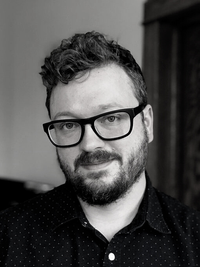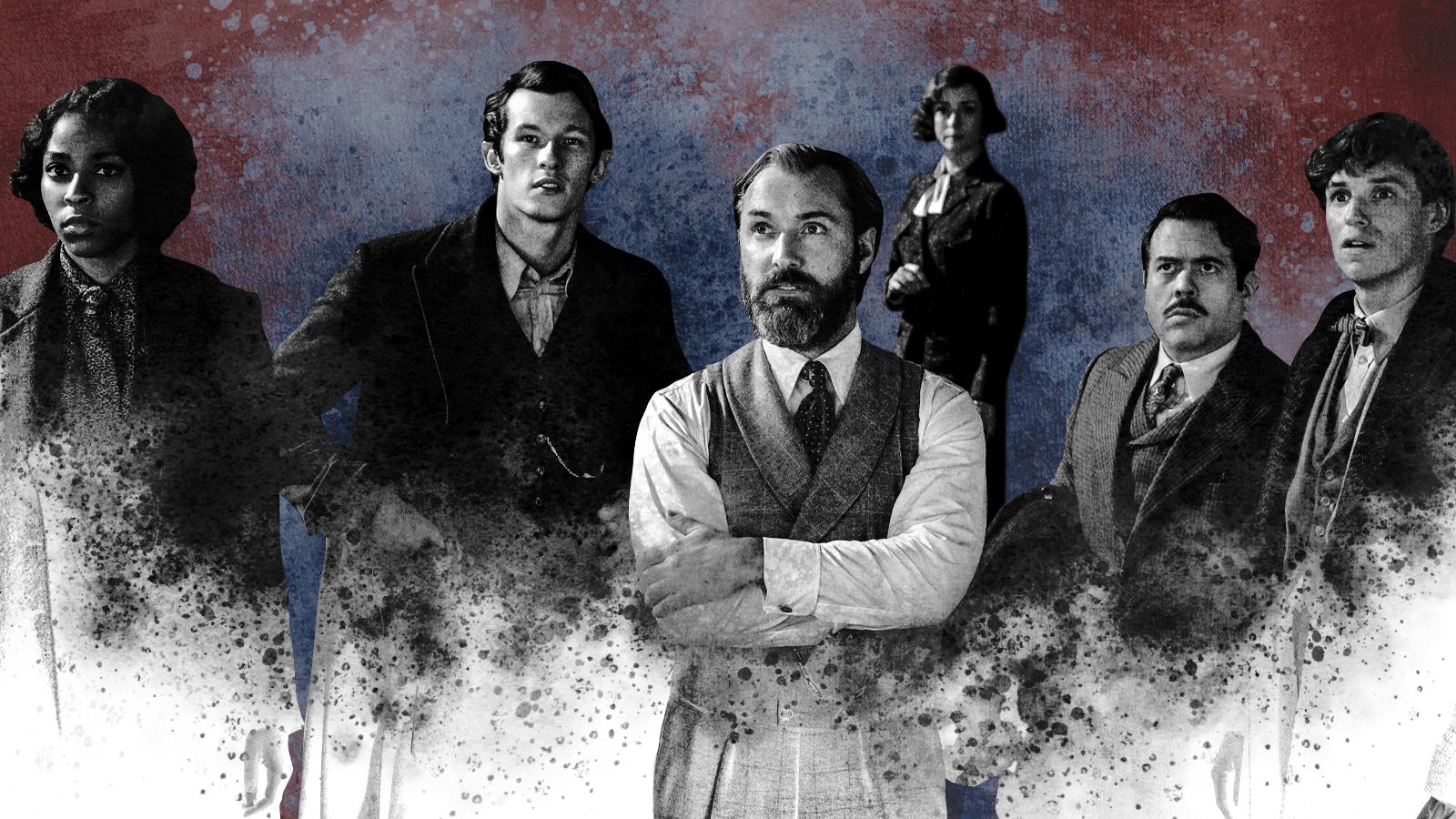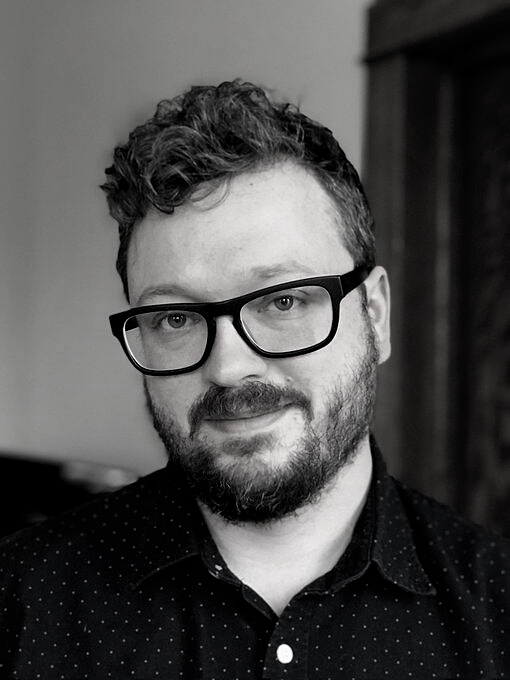Fantastic Beasts is the wizarding world all grown up. That's the problem.
They may pull the plug on the Harry Potter spinoff. Yawn.


A free daily email with the biggest news stories of the day – and the best features from TheWeek.com
You are now subscribed
Your newsletter sign-up was successful
Is the end nigh for Newt Scamander? The Secrets of Dumbledore, the third and now possibly final installment in the Fantastic Beasts franchise, fizzled and sputtered like a faulty wand at the box office these past few days. Its $43 million opening weekend stands as the lowest debut for any movie set in J.K. Rowling's wizarding world. That may be the coup de grâce for a series otherwise plagued by bad publicity — the PR nightmare of a former star with a radioactive reputation, a current one facing serious allegations, and a creator hellbent on systematically rebuking the devotion of her fans, one transphobic statement at a time.
A week ago, Warner Bros. released what could best be described as an exasperated sigh in press release form, announcing that it may soon pull the plug on the original plan to make two more of these movies.
However destructive the spell Rowling and her creative team have cast over this series (it's the audience they've made disappear, slowly but surely), one does have to wonder how invested fans ever were in the adventures of a precious adult zoologist with a very tangential relationship to The Boy Who Lived. Fantastic Beasts' downward slope to box-office failure began with a spinoff book never as popular as the all-ages fantasies that spawned it. It has looked from the start like a shameless attempt to squeeze every penny out of the world's love for Harry Potter. That it appears to be draining that well far ahead of schedule reflects how critically the new series has misunderstood that love. It wasn't the abracadabra that endeared everyone to the Potter stories. It was really Rowling's vision of childhood, wasn't it?
The Week
Escape your echo chamber. Get the facts behind the news, plus analysis from multiple perspectives.

Sign up for The Week's Free Newsletters
From our morning news briefing to a weekly Good News Newsletter, get the best of The Week delivered directly to your inbox.
From our morning news briefing to a weekly Good News Newsletter, get the best of The Week delivered directly to your inbox.
On page or screen, Harry Potter was a fantasy of adolescence, filtering all the milestones of growing up through a prism of magical misadventure. What kid hasn't daydreamed about a transformation of their ho-hum life, pining to see an ogre in the halls or a ghost in the bathroom? Yet that fantasy only truly enchants if the young audience can see themselves in it. The Potter books, and the movies made from them, are at heart coming-of-age stories adorned with some fanciful sorcery. Each crucially unfolds over a single school year, with the occasional rampaging monster interrupting the mundane stuff of childhood: sports, holidays, field trips, dances, first kisses, final exams. And the characters are a recognizable ensemble of classmates, teachers, and parents.
Rowling catered her novels to the experiences and advancing reading level of her readership. Kids could literally grow up with the characters, seeing a mirror of their own changing lives in the progression of the story. Older readers/viewers, meanwhile, found a nostalgia trip in Harry's rites of passage — a distorted reflection of their childhood memories. No wonder the best of the Potter movies are the ones that feel most deeply attuned to the growing pains and fledgling pleasures of youth: Series pinnacle The Prisoner of Azkaban emphasized hormones alongside time-travel exploits, while the grand Half-Blood Prince pushed pubescent jealousies and desires to the forefront, suggesting that the drama of a coming war between wizards was no less pressing than the melodrama of typical teenage life.
If nothing else, Fantastic Beasts clarifies just how vital that coming-of-age framework was to the charm of the material. As it turns out, removing Harry Potter from Hogwarts — and from the demographic appeals of YA — leaves behind only the mythological and the expositional wallpaper. It's very clear, watching these movies, that they're adapted from a branded guidebook. They have all the dramatic interest and excitement of a manual.
Technically speaking, they're prequels, rewinding back to the jazz age of the wizarding world and dropping in with younger versions of iconic Potter supporting players, most notably Jude Law's middle-aged Dumbledore. Yet they also feel like sequels in the way they abandon the comfy confines of scholastic life for a postgraduate view of the Potterverse. There's no comparable emotional arc to Fantastic Beasts, which substitutes a straight line into adulthood for a shapeless origin story populated by dour functionaries.
A free daily email with the biggest news stories of the day – and the best features from TheWeek.com
Nor does Rowling, who wrote (or co-wrote) each of the three Beasts, offer much in the way of a Potter figure. Who, exactly, might a young viewer identify with here? It's telling that the closest we get to an audience surrogate is a middle-aged baker (Dan Fogler's befuddled muggle-out-of-water Jacob Kowalski). As for Newt, Eddie Redmayne's fatally twee protagonist has the wide-eyed innocence but none of the relatable immaturity of youth; he makes Harry Potter look complexly flawed by comparison.
If the Potter stories sent Harry, Ron, and Hermione down the path to adult life, Fantastic Beasts shows how tedious and repetitive that life might turn out. In place of any sense of discovery, these films emphasize the politics and interdepartmental bureaucracy of the wizarding world — grownup stuff that looks boring even when draped in whiz-bang spectacle and weird creatures. Defeating the dark wizard Grindelwald (which the dully virtuous heroes of the Beasts films have now done three times) is less an epic quest than a dreaded yearly responsibility, like filing your taxes. Is all this a metaphor for how the joy and promise of youth can give way to soul-crushing obligation?
Even the movies seem wistful for the childhood their more beloved predecessors dramatized. The lone flicker of genuine passion across nearly seven hours of running time arrives during a flashback, in The Crimes of Grindelwald, to Dumbledore's teenage love affair with his mortal enemy. And this month's new installment can't resist dropping into Hogwarts for a couple minutes — a scene that's as transparently thirsty for the lost magic of the franchise as it is essentially superfluous to a busy plot designed to keep the conflicts in a state of inconclusive, stay-tuned stasis.
Maybe there's an unintentional lesson in the Beasts saga, a larger warning for younger fans. Movie franchises, like life itself, can veer in disappointing directions. The adults we look up to can let us down, revealing sides to themselves we never saw in them before. And sometimes, getting older means moving beyond the things that mattered to you when you were younger. Millions of people grew up with the Potter series. As it reaches a probable, premature, ignoble conclusion with this latest Fantastic spinoff, it's hard to shake the feeling that millions have now outgrown it, too.
A.A. Dowd is a writer and editor based in Chicago. He has held staff positions at The A.V. Club and TIme Out Chicago, and is a member of the National Society of Film Critics.
